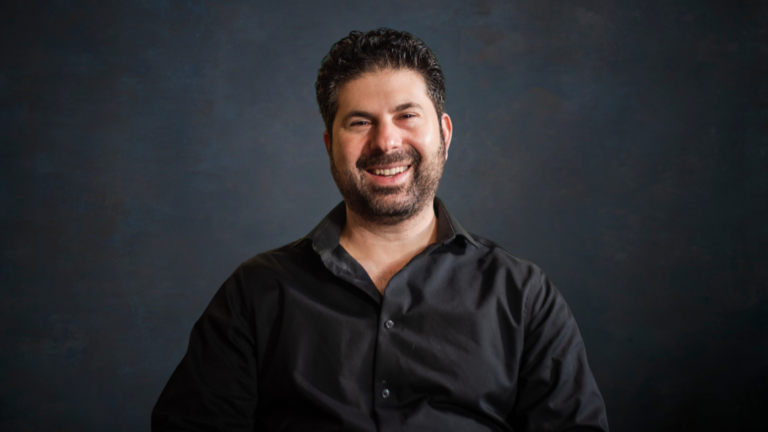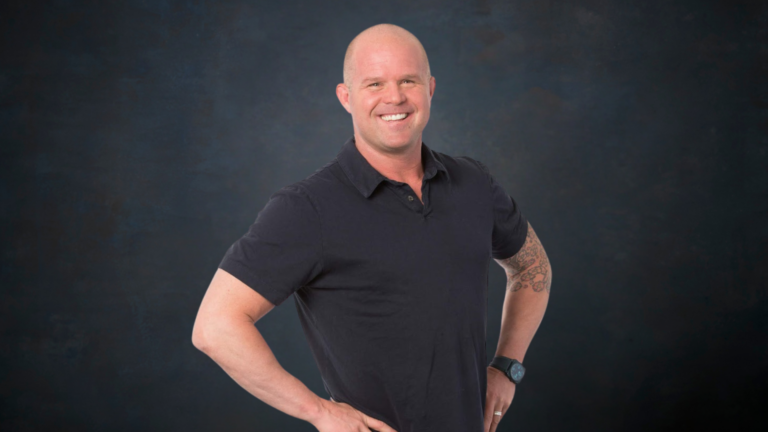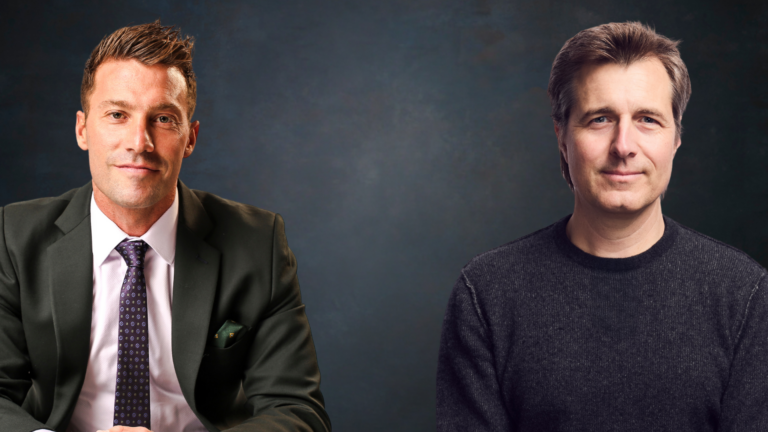Success – in any arena – often demands a delicate dance between fearlessness, finesse and dedication. Mikaela Shiffrin, a true luminary in alpine skiing, has mastered this equilibrium like no other. With an astounding 88 World Cup wins to her name, Mikaela stands as the greatest alpine skier in history. Period.
She’s a two-time Olympic Champion, seven-time World Champion, and five-time Overall World Cup champion. But Mikaela’s influence extends far beyond the slopes. In 2023, Time Magazine recognized her as one of the 100 most influential people in the world, and the ESPY Awards named her the Best Athlete in Women’s Sports. And she’s done all of this before the age of 29.
Clearly Mikaela has talent. Confidence. Discipline. But what sets her apart, as you’ll hear, is her commitment and honesty to work from the inside out. She’s developed incredible abilities to tune out toxic mental noise, perform at the knife’s edge, and bounce forward when it gets hard. More than anything, her success comes from her unflappable courage in the face of challenge – or as she says, “the confidence to try” – and try again and again, even if things don’t work out.
Off the mountain, and in this conversation, Mikaela is equally impressive. We delve into Mikaela’s remarkable journey, from her early days on the slopes to her unparalleled achievements in alpine skiing. She shares insights into handling external pressures, maintaining a process-oriented mindset, and embracing an honest approach to self-coaching. Join us as we explore the mindset of a true champion and learn from Mikaela’s clarity, intensity, and passion for the sport she loves.
“I know I can do the work it takes to win again… I might never win again, but I don’t really care about that. I just care that I’m willing to work hard enough to do it.”
In This Episode:
Achievements and Recognition
“I look at so many athletes, female and male athletes, and I feel like there’s more than one role to be played. And hopefully we have all of the great athletes, and especially if we’re specifically talking about female sports right now. We have all of the great women athletes coming up the ranks right now and performing. Maybe they’ve already established themselves. Maybe they’re about to. But there’s so much to watch. There’s so many athletes to root for and to be motivated, inspired by. So I’m kind of trying to take this approach that maybe it sort of takes a little pressure off me, at least in my own mind, just to think that there’s no one person who’s carrying that torch. It’s got to be all of us together.”
Pressure From a Young Age
I have to say that the people around me have been so incredible. I mean, I probably should have felt pressure when I was younger. Because there was quite a bit of talk about phenom and the next greatest skier. And there was quite a fair amount of talk. But for whatever reason, I think for a lot of reasons, and I think especially because my parents were very driven by the philosophy of just work ethic. Work hard, enjoy what you’re doing, be passionate about what you’re doing.
Supportive Parents and Setting Expectations
And it was so much of a self-driven motivation. And they were so supportive of that that I never felt like with externally, people talked and we got excited and everyone was excited about the potential for me. But my parents were always like, “Hey, one step at a time. Let’s just continue to enjoy this. And we don’t have expectations. We have no idea what. We think you’re amazing, but we have no idea what you can do.” And that, I think the most important thing for me was the people closest to me didn’t ever set expectations like that. So the phenom talk, the pressure, it was all external. I felt like I had a very, very strong bubble surrounding me of my closest friends and family.
Results vs. Process
It was always about the actions and not what might come of them really. Yeah, like you said. Very much process-oriented because that’s when you have fun. The winning lasts for, literally if you actually measure it, it lasts for probably one-thousandth of a second. The moment you cross the finish line and actually win the race. And the rest of the day, the rest of the year while you’re training, that’s where it’s actually fun. So it literally is the process. If you don’t like that part, then you really should probably find something else to do.
Choosing Skiing Over Other Sports
I think there was a potential for it to be a number of things. I did love soccer growing up. I kind of stopped playing soccer at a competitive level for the age group. 8, 9, 10 years old. I sort of stopped playing and started to shift more towards skiing when I was around probably 13 or 14. But tennis I’ve played, not competitively. I don’t know if I can manage it in a match, but I’ve played a lot since I was little. My mom has played her entire life. She’s loved it since she was little-little. So she is like my favorite tennis partner, and I use it for cross-training. And I think I have potential in other sports. It’s always a question for me and something, if I could have made it far enough or as far as I did in skiing. Because I never want to underestimate how difficult other sports are, that’s for sure.
Self-Coaching
They really were spinning it around into a very negative thing. And at the time, I very much let the media and external kind of sources sort of dictate how I felt about my own performances. And I’m currently working on listening to myself first, and how I feel about performances first. I’ve become over this past season, something that I’ve improved a lot at, is sort of the self-coaching. And kind of looking at myself first and asking what do I want to improve? And always making sure that I have something I want to improve. Before I talk to my coaches, before I talk to anybody, and definitely before I speak to any media. And that is incredibly helpful, because it just takes a little bit of importance away from the external sources.
Letting the Noise Pass Through
It’s a little bit of everything. I mean, there’s anxiety. I have anxiety a little bit around the Olympics. I have three Olympic medals, but after Beijing, there’s a little trigger in my mind that’s like, “What if I go to 26 and I still don’t win a medal? Then what are people going to say?” There’s still a part of me that listens to the external thoughts and opinions for sure. I don’t think anybody, I don’t know anybody, I certainly know for myself, it’s not possible yet to literally block out the noise completely. I’m more of, I let the noise flow through. And that’s a little bit more manageable than being like, “Oh, I am not listening. That’s toxic.” It’s more like, “Well, I heard that and I’m just going to choose to let it pass through.”
Not Believing in Curses
I know that it’s not real. It’s possible that I don’t win a medal at the next Olympics. That’s for sure a possibility. But the theory that, because the theory of being cursed about it, it’s almost more just like a self-fulfilling prophecy. The more I think about it, the more it would tend to get in my head. And I give it more strength by doing that. But it’s not an actual curse. It’s just literally, things happen and they happen one way or they happen the other.
Life Lesson from Jenna Marbles
Yeah, it’s like, you know what? One of the greatest lessons I learned from life was from my favorite YouTuber who’s not doing it anymore, Jenna Marbles. She said at some point, this was years and years ago. She was like, “I’ve learned that the best thing to do in life is have no expectations of anything. Like, have bad expectations. Set your expectations so low that you just don’t have them. But keep your standards high.”
Mindset at Her Best
“I feel very clear. It’s like imagining a pool of water, and it’s just not muddy. It’s just clear. And you can see the pebbles on the bottom. And I just feel so much clarity specifically about what I want to feel with my turns. It’s like a technical and a tactical thing. The movements that I actually want to make in a course. And I only get that from preparation and training. It takes lots and lots of time and lots of practice. And then I finally, I know I’m ready to race when I know the feeling that I want to have. And I don’t have to be sure that I can do it. I just need to be sure what the feeling should be. Because a lot of times I don’t do it. But for the most part it’s just giving me something to think about, focus on. And then that clarity combined with sort of intensity of focus. That’s when I’m at my best.”
Photo Credits: Mike Dawsy



